#napoleon ii duke of reichstadt
Text
Archduchess Sophie when she requested that Archduke Max's coffin was laid next to the Duke of Reichstadt's

#she really said `please bury my favorite son next to the guy rumored to be his actual biological father. for no particular reason at all`#girl you're not helping to dispel the rumors#maybe there was a practical reason for it but still. out of all the places in that chapel they put him THERE#they knew what they were doing#sophie of bavaria archduchess of austria#maximilian i of mexico#napoleon ii duke of reichstadt
40 notes
·
View notes
Text
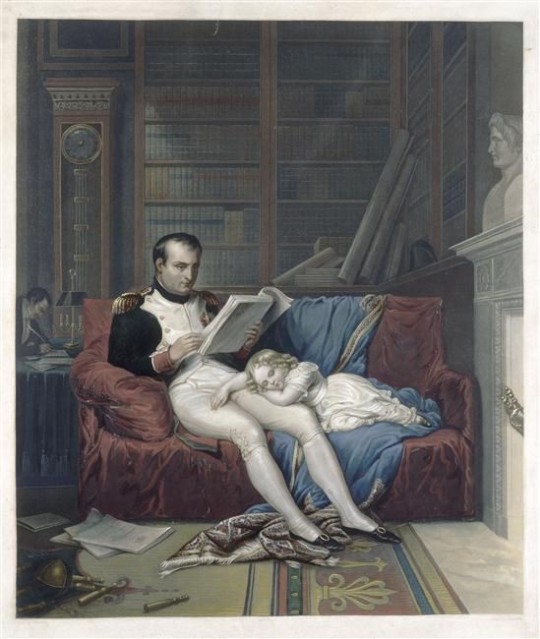
Emperor Napoleon I and his son The King of Rome
#emperor napoleon i of france#napoleon ii duke of reichstadt#french imperial family#french history#house of bonaparte
9 notes
·
View notes
Photo

Happy birthday, Napoleon II!
he deserves to be happy, even if he holds his lil cake with his bare hands <3
22 notes
·
View notes
Text
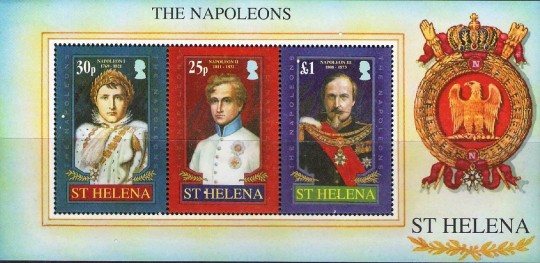
"The Napoleons"
Commemorative Stamps from St. Helena
#napoleon#bonaparte#Napoleon Bonaparte#Napoleon I#Napoleon Ier#Emperor Napoleon#Emperor Napoleon I#Emperor Napoleon Ier#Napoleon II#Franz#Duke of Reichstadt#The Napoleons#Saint Helena#St Helena#exile part deux#exile#Stamps#St Helena stamps#Napoleon stamps
34 notes
·
View notes
Photo

Happy birthday to Napoleon II, aka the Eaglet, aka the King of Rome, or Franz, Duke of Reichstadt. I couldn’t stand how all the mentions of his birth were just pictures of him as a baby, accompanied by the mother who abandoned him: so here he is, as a (gorgeous, brooding) adult.
My current blog-a-thon about the 19th century Astyanax:
PART ONE
PART TWO
PART THREE
#napoleon II#l'aiglon#duke of reichstadt#eaglet#franz duke of reichstadt#reichstadt#sketch#sketchbook#art#illustration#19th century
138 notes
·
View notes
Photo
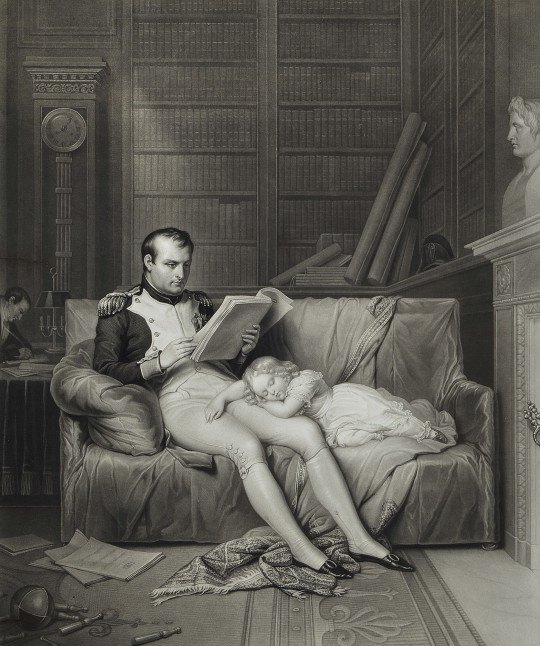
I’ve come upon several images like the above (engraving by A. V. Sixdeniers), and I’m never quite comfortable with them as I assume they picture a situation that probably never once existed. I also always wondered how much time Napoleon actually even spent under the same roof as his son. Now I see that the French Wikipedia page already has done the maths for me:
1 year, 5 months, 24 days. (Out of not quite 3 years total.)
And on those days, he may have spent how much time with the child? An hour? When the boy was ceremoniously brought before him by his governess to be looked at and talked to, until he was escorted back into his own rooms, where he was surrounded by his own staff of (in 1812) 31 people in total?
I cannot imagine he ever was close to this child. How else could he have written that he rather wanted to see his son in the Seine than in the hands of the Austrians? What father would rather see his son dead?
(Sorry for the random post. Having a bad day today.)
35 notes
·
View notes
Text
Hector Fleischmann on Marie Louise
Belle Epoque author Hector Fleischmann REALLY doesn’t like Marie Louise, Napoleon’s second wife, and he is not shy about letting you know this. In his very short book “Marie Louise, Libertine,” here is his take on the last correspondence between Marie Louise and Madame Mère, on the death of Franz, aka Napoleon II, the King of Rome, or the Duke of Reichstadt.
* * *
A few weeks of respite still, and the denouement is close. On July 22, at 5:10 a.m., the melancholy destiny of the young man came to an end; the last link that tied Marie-Louise to the memory of Napoleon was broken. This death, which was to strike her with an unparalleled blow, which seemed to take with it all that was to remain of her radiant and happy youth, this death, it is in two small sentences, poor and banal, that she announces it to her father. Here is the bill. It completes her in the moral:
Schoënbrunn, 22 July 1832.
DEAR FATHER, My poor son has just expired at 5 hours 10 minutes. Heaven has answered my prayers and granted him a sweet and peaceful death. I kiss your hands, my dear father, and thank you for all the kindness and affection you have shown him; my heart, full of filial tenderness for you, will be eternally grateful.
Here is what, at the tragic hour of her destiny, this mother finds to mourn her son. Not a cry of the heart in this bill, not a sob from the bowels. She records the death, without more. But what more could we have expected from her? And, in the letter with which she announces to Madam Mother the disastrous news, it is the same peaceful and neutral insignificance, the same monotone, the same nullity: To Madame Mère, in Rome.
MADAME, In the hope of softening the bitterness of the painful news that I am unfortunately in the position of announcing to you, I did not want to yield to anyone the painful task of telling you about it. On Sunday 22nd, at 5 o'clock in the morning, my beloved son, the Duke of Reichstatd (sic), succumbed to his long and cruel sufferings. I had the consolation of being with him in his last moments, and of being able to convince myself that nothing had been neglected to keep him alive. But the help of art was powerless against a chest disease that doctors, from the beginning, have unanimously judged of unanimously judged to be of such a dangerous nature that it was bound to lead my unfortunate son to the grave, at the age when he was giving the best hopes. God has disposed of it! It only remains for us to submit to his supreme will, and to confound our regrets and our tears.
Accept, Madam, in this painful circumstance, the expression of the feelings of attachment and consideration that your affectionate MARIE-LOUISE has devoted to you.
At the castle of Schônbrunn, 23 July 1882.
But one guesses well that this is only a protocol model copied by the mother in mourning.The sentence is pompously and ridiculously rounded, and in it nothing speaks of what is nature.
That more worthy, more noble and more heart-rending, is the letter with which the blind and solitary grandmother answers in her old Roman palace! Here the great Napoleonic tone crushes the sentence, swells it with the captive storm of the enormous contained pain. It is Fesch that the mother of the Emperor charges to write:
Rome, August 6, 1832.
MADAME, In spite of the political blindness which always deprived me of receiving news of the dear child whose loss you want to announce to me, I never ceased to preserve for him the heart of a mother (1). He was still the object of some consolation for me, but to my great age, to my usual and painful infirmities, God wanted to add this blow, a new token of his mercies, in the firm hope that he will have amply compensated, in his glory, the glory of this world. Please, Madam, receive the testimony of my gratitude, for having taken the trouble, in such a painful circumstance, to relieve the bitterness of my soul. Be sure that it will last the rest of my life. As my condition prevents me from signing this letter, allow me to entrust it to my brother.
#marie louise#Madame Mère#napoleon bonaparte#napoleon II#duke of reichstadt#king of rome#hector fleischmann
19 notes
·
View notes
Photo
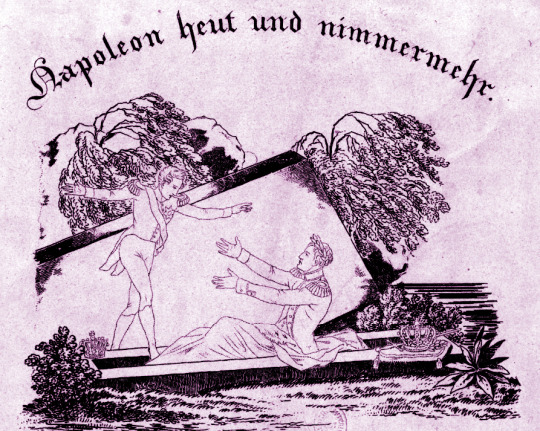
Napoleon welcoming his son into his tomb. The text means “Napoleon today and nevermore.”
8 notes
·
View notes
Text

Brother sent me this picture because "I recognized him because of you." I can't really justify making him get it for me since I have no place for something of that value and fragility- but I thought some of you folks would appreciate the art. "Kister Scheibe from Germany is the brand," bust of "Napoleon II"
37 notes
·
View notes
Text

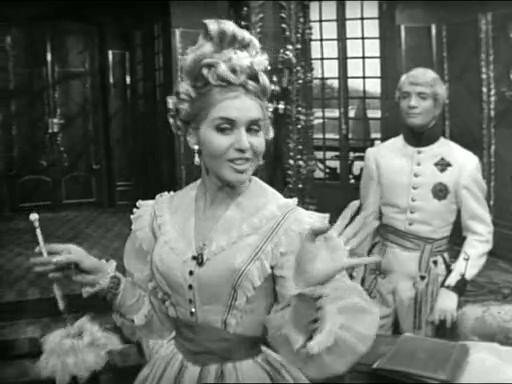
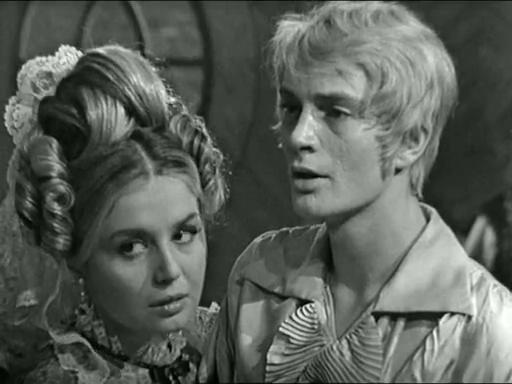
Napoleon, Duke of Reichstadt (Serge Ducher) and Archduchess Sophie (Danielle Volle) in "L' Aiglon" (1966)
#sophie of bavaria#napoleon ii#duke of reichstadt#archduchess of austria#king of rome#habsburg#wittelsbach#austria#royalty#filmedit#mine
9 notes
·
View notes
Text



Napoleon II (1811-1832).
Duke of Reichstadt.
He was the son of Emperor Napoléon I and Empress Marie Louise, and had been Prince Imperial of France and King of Rome since birth.
He was disputed Emperor of the French for a few weeks in 1815.
#napoleon ii#napoléon ii#napoleon#napoleon bonaparte#19th century#1800s#french empire#french history#historical crush#history#history crush#history crushes#historical babe
64 notes
·
View notes
Photo

22 July 1832: Napoleon’s only legitimate child, Napoleon François Charles Joseph Bonaparte, also known as the King of Rome, Napoleon II or the Duke of Reichstadt, died of tuberculosis at Schönbrunn Palace in Vienna at the age of 21.
“Suddenly the Baron [Moll] felt the Duke clutch at his arm convulsively with one hand, while with the other he beat his breast and ejaculated with great effort: ‘Poultices, blisters!’ These were his last words. Hardly had he spoken them before his eyes grew fixed and glazed; the convulsive movements of his body relaxed, and he fell into a state of torpor. When the valet returned in haste with the cataplasms, Moll left the dying man to him and Nickert [a physician], while he went to announce to the mother, to the Archduke Francis Charles and the Court in general that the end had come. When he came back, the Prince was dying peacefully and without suffering; he breathed quietly but could no longer articulate. He was still perfectly conscious and recognized every one. When Marie Louise, led by Moll, entered the death chamber, she was trembling from head to foot and clung to the Baron’s arm for support. Reaching the bedside she remained standing there, incapable of uttering a word.… All knelt while the priest performed his office; Marie Louise leant against a chair, the Archduke Francis Charles at the foot of the bed, the others behind or at the side. After extreme unction had been administered, during which the dying man, his hands folded, followed with his eyes each ceremonial function, the priest asked the Duke if he should read or pray aloud. To the first question he shook his head, but made an affirmative sign in reply to the second. The Chaplain now began to pray half-aloud and laid his hand as though to mesmerise him, first on the forehead and then on the folded hands of the dying man. While this was taking place, Marie Louise was seized with faintness. When she recovered, she knelt down once more. At a few minutes past 5 A.M. the Prince, whose last hour was peaceful and easy, moved his head twice from side to side. Then his breathing ceased and his lips no longer moved.”
The grief-stricken members of the court, palace staff, and others crowded into the Duke of Reichstadt’s room to look at his body. They cut off almost all of his hair and carried away whatever other souvenirs they could find.
The funeral was held on July 24. The Duke of Reichstadt was buried in Vienna with full military honours. One of his tutors, Jean-Baptiste Foresti, wrote to Maurice Dietrechstein, the boy’s governor, a few days later.
“I am quite of your opinion that it is far better for the poor Prince to have passed into a quieter world. His entire position was so artificial, so constrained, so unnatural, his character so perplexing and incomprehensible, his dangers so many, that contentment and true happiness were impossible for him in this life.”
In 1940, the remains of the Duke of Reichstadt were transferred to Paris, a gift to France from Adolf Hitler. They rested for a while beside those of Napoleon in Les Invalides, before being moved to the lower church. The Duke of Reichstadt’s heart and intestines stayed in Vienna, where they reside respectively in urns at the Habsburg Heart Crypt (Hofburg Palace) and the Ducal Crypt (St. Stephen’s Cathedral).
There is a tomb for Napoleon’s son in Canada.
Engraving of the Duke of Reichstadt on his deathbed by Franz Xavier Stöber
21 notes
·
View notes
Text
this scene from L’Aiglon (from 5:38, at “J’attends mon régiment” to the end of the track) is my new favorite thing. it’s a strange quasi-mad-scene born of desperation...
it’s 1831. L’Aiglon, aka Napoleon II, Duke of Reichstadt, is a 20-year-old who desperately wants to live up to his dead father’s legacy of heroism and leading France to liberty (as he believes at any rate), but by a combination of fate and politics has ended up essentially held hostage since he was very young in the Schönbrunn Palace in Vienna. as such, he and several of his friends and allies, including his loyal footman Séraphin Flambeau, have planned to meet at the field of Wagram to conspire and help the Duke escape to Paris. but the group receives word that the conspiracy has been discovered and the Austrian police are on their way to arrest them. everyone flees—except the Duke and Flambeau, the latter of whom kills himself rather than surrender, loyal to the end. But he is not killed instantly; he lies dying in agony. to give him some comfort, the Duke describes the 1809 Battle of Wagram, at which Flambeau actually fought, in order to take his mind off the pain. it does, and Flambeau wordlessly dies in the middle of the scene.
but the vision takes its hold on the Duke. he begins to hallucinate the voices of the dead crying out to him. he pleads for mercy from the voices. he begins to hallucinate visually as well, seeing the torn-apart limbs from the bodies of French soldiers. the voices begin to sing the Marseillaise. the hallucination of the battlefield continues. the Duke believes he is at the head of a French regiment pushing forward.
but from the opposite direction, an officer at the head of an Austrian regiment arrives. it is unclear whether the officer is an officer from the Battle of Wagram or an officer come to arrest the Duke in real time. at any rate, the officer stops the Duke by saying, “Prince, what are you doing? this is your regiment!” the Duke is pulled away suddenly from his hallucination, reminded brutally that the glorious legacy of his father will never be his. he attempts to give a few military commands to the Austrian regiment, but collapses.
seriously...damn, it is intense.
#opera#opera tag#L’Aiglon#J’attends mon régiment#kind of a mad scene???#Honegger#Arthur Honegger#Anne-Catherine Gillet#Marc Barrard#haunting things#Spotify
2 notes
·
View notes
Text

Translation: Michel Ney d’Elchingen, last Prince de la Moskova (*also last Duc d’Elchingen) in the costume of the Eaglet, Duke of Reichstadt (*Napoleon II)
Found this on Napoleonic Twitter and he looks so precious🥺🥺🥺🥺 (source)
#michel ney#marshal bae#ginger babey#babey family#l’aiglon#precious babies🥺🥺🥺#MUST PROTECC THIS TINY#finally#Napoleonic content
14 notes
·
View notes
Photo
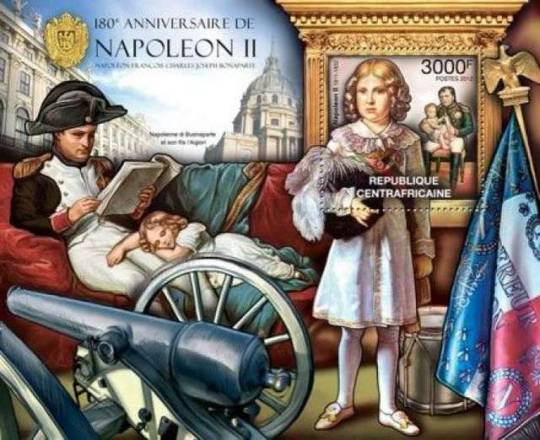
Anniversary Stamp of Napoleon II, King of Rome, Duke of Reichstadt.
And Napoleon’s bad hat day...
#napoleon#bonaparte#Napoleon Bonaparte#Emperor Napoleon#Emperor Napoleon I#Emperor Napoleon Ier#Napoleon I#Napoleon Ier#stamps#Napoleon stamps#Duke of Reichstadt#King of Rome#Napoleon II#Napoleon's children#Bad hat days
18 notes
·
View notes
Text
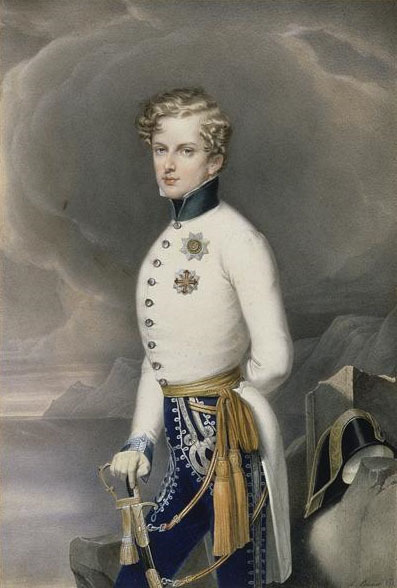
These are excerpts from »Mein Verhältnis zum Herzog von Reichstadt« by Ritter Anton Prokesch von Osten. This gentleman, fifteen years older than Franz von Reichstadt and apparently a bit of an adventurer but with excellent diplomatic skills, had made a name for himself in fighting for the unification of Greece and in the Levante, services for which he had recently been knighted. He had also, already in his youth, written several books full of appraisal for Napoleon, one about the battle of Waterloo. Recently returned to Austria, he was staying in Graz in June 1830, when he first made the acquaintance of the Duke of Reichstadt:
At that time the court also went there and on the 22nd I had the honour of being called to the imperial table. I sat opposite the Empress and had the Duke of Reichstadt, who sat opposite the Emperor, at my side. […]
Okay, let’s just stop here already for a second. So, at this official court event Franz sits
at the family table
and vis-à-vis his grandfather the Emperor (a place of honour).
This does not sound like isolation or mistreatment to me. In a letter to Austrian politician Gentz Prokesch even mentions that the evening before, when the emperor and his family appeared at the theater, the Duke of Reichstadt had been greeted by some with shouts of »Vivat Napoleon«. And this, as Prokesch states, »quite innocently«, i.e., without giving it much thought. Apparently nobody bothered about political implications.
During the imperial dinner that Prokesch was invited to, he did not have much occasion to chat with Franz, for once because arch-duke Johann talked too much, but also because Franz definitely held back at this public occasion and was not very approachable. He did shake Prokesch’s hand however, when Prokesch took his leave, and told him that he had known him for a long time already (i.e., that he had read his books).
On the morning after this day, Count Moritz Dietrichstein, who had been entrusted with the Duke's education, and a man who had been well-disposed towards me from the time when I had been carried by the favour of the House of Prince Schwarzenberg, came to me in order to renew the complaint he had already levelled at me yesterday, namely that, although I had been in the same city with the Duke for a week, I had neglected him. He invited me to go straight to him.
So, let’s recapitulate: The evil obusive reactionary instructor himself calls upon a known admirer of Napoleon in order to get him to make the acquaintance of his student.
I followed him with pleasure. When I entered, the Duke, a different man in his bearing from the day before, met me with all the swiftness of youth and with an expression full of confidence and warmth. Repeating the words of yesterday, he said: "I have known you and loved you for a long time. You have defended my father's honour at a time when all was racing to scorn him. I have read your Battle of Waterloo and, in order to absorb every line in it, I have translated it twice into other languages, into French and Italian." I answered what the desire to captivate the handsome young man, so unique in the world, made me say. Count Dietrichstein first brought the conversation to Greece. Full of best wishes for this country now called to its own life, I had already expressed the opinion yesterday, after the imperial dinner, that despite the evils arising from war, lawlessness, factionalism and misgovernment, Greece would quickly blossom into a happy future if a European prince was given to it as king and if it were not governed with diplomatic half-measures. To the Archduke Johann, to Count Moritz [i.e. Dietrichstein], to the principal of the Archduchess Marie Luise, to Colonel von Werklein, I had, at a moment when the Duke was otherwise engaged, suggested that the Greek throne, which had lacked a claimant since the rejection of the Prince of Coburg, could be given to no one more worthy than the son of Napoleon, and to my surprise this suggestion had met with applause. Even the Empress, who had come to us during this conversation, did not seem averse to it. [...]
Now Count Dietrichstein turned the conversation onto Napoleon.
Again: It is Dietrichstein himself who brings in the alleged hot potato. And apparently, Franz has no fear to talk about the topic in his governor’s presence:
The Duke spoke in great excitement. - The warmest admiration for his father, the most passionate attachment was in the Duke's every word. But he dwelt chiefly on the latter's military talents. To train himself as a general according to this pattern was something he was passionate about down to his fingertips. We discussed several of his manoeuvres, for example that of Austerlitz. I was amazed at the Prince's strategic judgement and the firmness of his expression. Among all the officers and generals present in Graz at that time, there was certainly not one with such a sharp military eye and so resolute a disposition towards the commander. He came back to my Battle of Waterloo, but also to my "Memories from the Life of Field Marshal Prince Karl zu Schwarzenberg". The Duke discussed these with a tact that surprised me. He then complained about his loneliness and burst into the words: "Stay with me! Make the sacrifice of your future, stay with me! We, we would understand each other!" He spoke this with a warmth that penetrated my heart. Then he continued: "If it is my destiny to become a Prince Eugene for Austria, I ask myself how to train myself for this role? I have to choose a man who can introduce me to the higher demands and tasks of war; I have and see no such man in my surroundings." Count Dietrichstein witnessed this statement and seemed to find it natural and approve of it.
Dietrichstein then leaves the two to themselves for a while, and Franz noticeably opens up even more and talks about his present situation at court and his plans for the future.
"[...] If it is my doom never to return to France, I am serious about my desire to become another Prince Eugene for Austria. I love my grandfather - I am a piece of his house and will gladly draw the sword for Austria against anyone but France." He laid down these words like a confession in my soul, and so I took them.
A bit later, Prokesch repeats how close the relationship between Reichstadt and his grandfather was:
[...] He loved his grandfather with the love of a child, for from the day he was brought to Vienna he had found in him the tenderness of a father. At that time he was given a playground in the emperor's rooms - did not leave his side for half a day, ate with him when the emperor ate alone, shared his stays in the country with him and grew up with him like a branch grafted onto a foreign trunk. He told me this, but added: that he would not forget for a moment who he was born and where his father was decaying. […]
Again – this does not sound like »isolation« to me.
Out of interest to those who are familiar with the books by Aubry and Castelot: How do they treat these informations? I understand Prokesch is generally accepted as one of Reichstadt's true friends? Or is there reason to question the truth of his statements?
I guess what I'm trying to say is: Let's be fair and hear both sides before jumping to conclusions. Just because Dietrichstein was – by modern standards – a horrible pedagogue does not mean he was automatically wrong in his assessment of Franz’s character traits. Proksch actually seems to confirm some of it. Just because »l’Aiglon« had a tragic fate does not mean he was automatically a saint.
43 notes
·
View notes